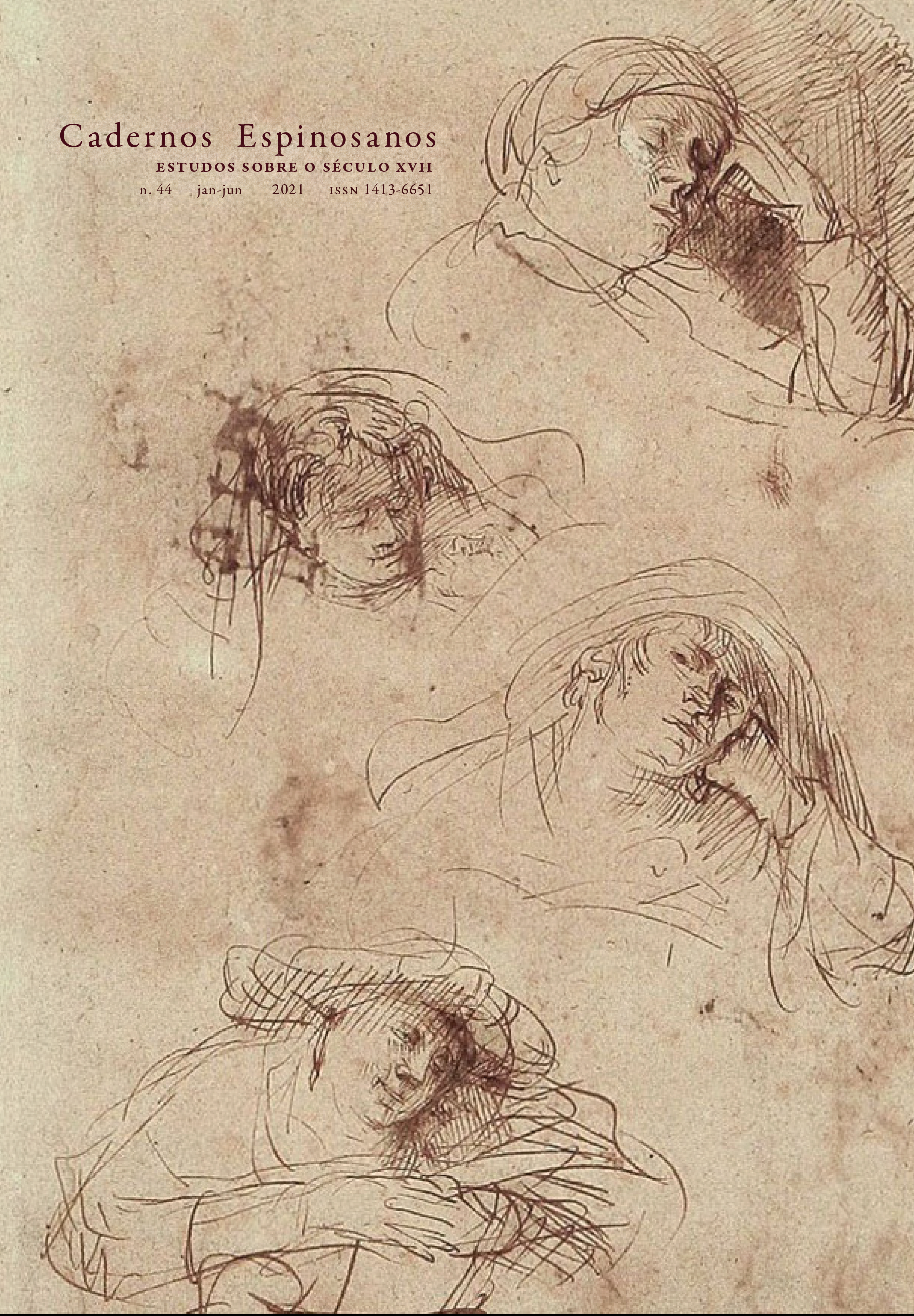Principles, habits and the foundation of knowledge
DOI:
https://doi.org/10.11606/issn.2447-9012.espinosa.2021.187901Keywords:
Pascal, Epistemology, Foundationalism, First principlesAbstract
We intend to put certain aspects of pascalian speculation within an epistemological background. We will frame them, in more detail, within the so-called tradition of Epistemic Foundationalism. The main intention will be to show the genesis of the first principles, essential for the epistemological framework in this tradition, and the consequences arising therefrom. For this purpose, we will compare the pascalian developments to the cartesian on this theme. We hope, at the end of the paper, to have demonstrated the strength and novelty of the pascalian solution and the moral desideratum to which it can lead us.
Downloads
References
AUDI, R. (2011). A Contemporary Introduction to the Theory of Knowledge. Third Edition. New York: Routledge.
BONJOUR,L . (2010). Epistemology – Classic Problems and Contemporary Responses. Second Edition. Maryland: Rowman & Littlefield Publishers.
DESCARTES, R. (1983). Meditações Metafísicas. Coleção Os Pensadores. São Paulo: Abril Cultural.
DESCARTES, R. (2002). Regras para a Direção do Espírito. Lisboa: Edições 70.
FUMERTON, R. (2006). Epistemology. Malden: Blackwell Publishing.
GOUHIER, H. (2002). Blaise Pascal, Conversão e Apologética. São Paulo: Discurso.
HUEMER, M. (2010). “Foundations and Coherence”, In: A Companion to Epistemology, Second Edition. United Kingdom: Blackwell Publishing.
KLEIN, P.D. (2011). “Infinitism”, In: The Routledge Companion to Epistemology. Edited by Sven Bernecker and Duncan Pritchard. New York: Routledge.
LEBRUN, G. (1983). Blaise Pascal. São Paulo: Brasiliense.
MARION, J.L. (1997). Sobre a Ontologia Cinzenta de Descartes. Lisboa: Instituto Piaget.
MARION, J.L. (2009). “A metafísica cartesiana e o papel das naturezas simples”, In: Descartes. São Paulo: Idéias e Letras.
MOSER, P.K.; MULDER, D.H.; TROUT, J.D.; MOSER, P.K. (2009). A Teoria do Conhecimento – Uma Introdução Temática. São Paulo: Editora Martins Fontes.
MOYAL-SHARROCK, D. (2004). Understanding Wittgenstein’s On Certainty. New York: Palgrave Macmillan.
OLIVA, L.C. (2004). O conhecimento em Pascal. In “Cadernos Espinosanos”, número XI, São Paulo.
OLIVA, L.C. (2012). A noção de graça em Blaise Pascal. In “Cadernos Espinosanos”, número XXVI, São Paulo.
PASCAL, B. (1971). Pensamentos. (Tradução de Sérgio Milliet, numeração Brunschvicg) in “Os Pensadores”. São Paulo: Abril Cultural.
PASCAL, B. (2005). Pensamentos. (Tradução Mário Laranjeira, numeração Lafuma) São Paulo: Martins Fontes.
PASCAL, B. (2017). Do Espírito Geométrico e Da arte de persuadir e outros escritos de ciência, política e fé. Belo Horizonte: Autêntica.
RODRUIGUES, L.E. (2006). Internismo e externismo fundacionalistas. O que são? Disponível em: <https://criticanarede.com/epi_internismo.html>. Acesso em: 04 de março 2019.
Downloads
Published
Issue
Section
License
Copyright (c) 2021 Rogério Fernandes Martins

This work is licensed under a Creative Commons Attribution-NonCommercial-ShareAlike 4.0 International License.
Autores que publicam nesta revista concordam com os seguintes termos:
- Autores mantém os direitos autorais e concedem à revista o direito de primeira publicação, com o trabalho simultaneamente licenciado sob a Licença Creative Commons Attribution que permite o compartilhamento do trabalho com reconhecimento da autoria e publicação inicial nesta revista.
- Autores têm autorização para assumir contratos adicionais separadamente, para distribuição não-exclusiva da versão do trabalho publicada nesta revista (ex.: publicar em repositório institucional ou como capítulo de livro), com reconhecimento de autoria e publicação inicial nesta revista.
Authors who publish in this journal agree to the following terms:
b. Authors are authorized to take on additional contracts separately, to non-exclusive distribution of the article published in this journal (ex.: to publish in institutional repository or as part of a book), with an acknowledgment of its initial publication in this journal.


